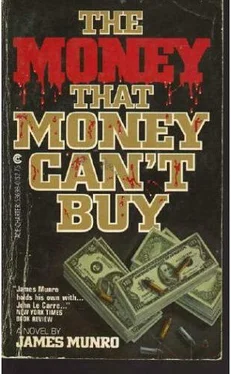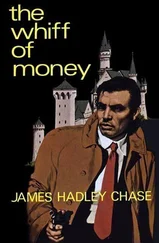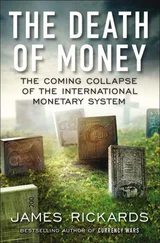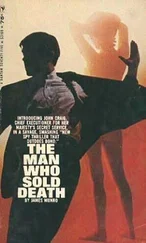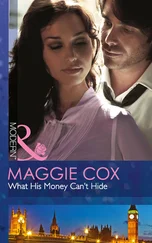James Munro - The Money That Money Can't Buy
Здесь есть возможность читать онлайн «James Munro - The Money That Money Can't Buy» весь текст электронной книги совершенно бесплатно (целиком полную версию без сокращений). В некоторых случаях можно слушать аудио, скачать через торрент в формате fb2 и присутствует краткое содержание. Жанр: Старинная литература, на английском языке. Описание произведения, (предисловие) а так же отзывы посетителей доступны на портале библиотеки ЛибКат.
- Название:The Money That Money Can't Buy
- Автор:
- Жанр:
- Год:неизвестен
- ISBN:нет данных
- Рейтинг книги:4 / 5. Голосов: 1
-
Избранное:Добавить в избранное
- Отзывы:
-
Ваша оценка:
- 80
- 1
- 2
- 3
- 4
- 5
The Money That Money Can't Buy: краткое содержание, описание и аннотация
Предлагаем к чтению аннотацию, описание, краткое содержание или предисловие (зависит от того, что написал сам автор книги «The Money That Money Can't Buy»). Если вы не нашли необходимую информацию о книге — напишите в комментариях, мы постараемся отыскать её.
Agent Craig is one hunk of a killing machine, smooth, professional, amoral, unquestioning. And the real drama comes after his masculinity has been almost severed. Will he turn on his manipulating department head Loomis? In the meantime he's successfully kidnapped a Russian agent and subsequently teamed up with other Russian agents to stop an anti-Soviet organization planning to flood the market with phoney money. But the slapdash action turns out to be equally counterfeit and the psychodrama Just so much spy schmaltz.
The Money That Money Can't Buy — читать онлайн бесплатно полную книгу (весь текст) целиком
Ниже представлен текст книги, разбитый по страницам. Система сохранения места последней прочитанной страницы, позволяет с удобством читать онлайн бесплатно книгу «The Money That Money Can't Buy», без необходимости каждый раз заново искать на чём Вы остановились. Поставьте закладку, и сможете в любой момент перейти на страницу, на которой закончили чтение.
Интервал:
Закладка:
"Your people are thorough, too," said Tania.
"We rented the basement for a month," said Craig. "The rock was easy, but we had to wait until the bank closed tonight to cut through the steel." He turned to Istvan. "In you go," he said.
Istvan disappeared as naturally as a rabbit into a burrow, and Boris followed.
Craig turned to the woman.
"You'll keep watch?" She nodded. "If we're blown and there's time, come into the bank. We'll set up an escape straight through to the front door. If there's any excitement, there'll be a car waiting. A green Buick taxi."
"It's a pleasure to work with you," said Tania.
He went through the hole, and Tania sat, her back against the wall. It was cold in the cellar, and for that reason only she shivered, then took from her pocket a Makarov 9mm. semi-automatic pistol. It was made in the USSR and was very, very accurate.
One corner of the bank cellar was filled with the massive outline of the time-lock safe. Istvan examined it by the light of a pencil torch, then grinned with the affection reserved for an ancient enemy, as Craig led the way up the stairs to the door that led to the mezzanine. He moved aside for Istvan to join him, then held the torch as the Hungarian used his picklock with slow, careful skill. On the mezzanine floor an armed guard was posted, and above him on the ground floor was another. Until they were silenced they could risk no noise at all. As Craig watched, the picklock engaged, and Istvan's gloved hand reached out, the door handle turned. Slowly, a fraction at a time, he opened the door. Craig watched through the widening crack, then his hand touched Istvan's arm. The door stayed still. The room was lit, and Craig could see the guard sitting in a chair, his back to the door. He looked over to the windows. They were completely shuttered. He watched as Istvan took an oil can from his case and oiled the door hinges, then pulled the door open wider. Craig went through like a cat, moving up to the guard. The man sat still until Craig almost reached him, then suddenly became aware of the other's presence. He started to rise as Craig's hand struck out, moving into the blow, then fell back into the seat; that would have fallen too if Craig had not held it steady. No cry, no crash, no sound at all. Craig looked down at the guard as the other two came in. He was an Arab in a uniform that looked vaguely military, blue bat-tledress with the initials C.L.—Credit Labonne— on the shoulders. Behind his ear a bruise darkened to purple on the olive skin. Istvan took wire and tape from his bag and tied him to the chair, then gagged him. When he had done, Craig felt the guard's pulse. He had not thought the guard would move. That increased the force of the blow, and he hadn't meant the guard to die. The pulse was thin and ragged, but it was there. Only Sir Matthew Chinn knew why Craig was relieved.
Istvan oiled the hinges of the mezzanine door, then looked at the grille in the room, and the safe behind it. He pointed at his watch. Time was running short. He listened, then opened the door to a half flight of steps and a third door above them. Behind it was the second guard. Again Istvan worked with the picklock, oiled the door hinges, eased the door ajar. This time the guard was sitting half facing the door. Boris began an elaborate pantomime, and Craig nodded. Istvan closed the door and began to lock it. Boris shook his head, and Craig and Istvan moved back to the mezzanine. Boris took out a Makarov, then a ten-dirham coin about the size and weight of a shilling. He let the coin fall on the stone steps. From behind the door he heard in the room the creak of a chair, footsteps, the grating of a key in a lock. Then the door opened, and as it did so Boris pushed it from his side. It slammed into the man behind it and Boris swerved through and struck with the butt of the Makarov as the guard opened his mouth to yell. From the mezzanine they heard the thud of his body hitting the floor. Istvan looked down at Craig's right hand. It held the Smith and Wesson, and it was rock-steady. He began to feel better.
Boris called to them softly, and again Istvan wired and taped the guard, then threaded his way past the caisse to inspect the main door, unlocking it, leaving only one heavy bolt in place. Then they went back to the mezzanine, and the fiendishly complex lock that protected the combination of the grille. Craig held the torch as Istvan examined it.
"The same as before," he said. "Good. This will not take long."
Once again he probed and tested, then took out the key he had made for the safe Loomis had set up for him. He tried it, and it didn't work. Delicately, with extreme care, he filed two of the wards. Again it failed. Istvan swore, then filed a third ward, oiled the key and eased it into the lock. It clicked as it engaged, then he again put a bar of metal into the -ring end and twisted—one to the right, three to the left, two more to the right. The lock opened and Istvan pushed across the shutter that screened the combination. His hand reached out to turn it, then froze into stillness. Inside the combination panel were two tiny photoelectric cells. Boris shuffled with impatience as Istvan searched for their wires. To reach them he had to dig into the plaster walls. He cut them and went back to the combination.
"No nation thinks so highly of money as the French," he said. "They revere it as they do God. Even the West Germans don't treat the Deutsch-mark like that." His hand turned the dial, and the tumblers clicked.
"I would prefer you not to talk," said Boris.
"It soothes me," Istvan said, and turned the dial again. "To the West German, the Deutschmark is a symbol, no more."
"The swastika was a symbol," said Boris. But the tumblers clicked again, and Istvan was listening. He took a stethoscope from his bag and listened even more intently, and Craig wondered why the conversation should seem so important to him. They had come to steal money—but there was more to it than that. What Istvan had said was important. Loomis had said it too, weeks ago. The Deutschmark was a sacred symbol. They would do anything to protect it. The tumblers clicked, and Istvan sighed, and Craig put the problem from his mind.
"That's it," said Istvan.
He pressed a button on the wall and there was a whirring hum as the shutter folded upward. Behind it was the door of the safe, and two more cells.
Istvan said: "These electronic eyes are a nuisance. But I dare not switch off the electricity. The bank must show some light on to the street."
Again he found and cut the wires, then worked at the lock protecting the combination of the safe. When it gave at last there were more photoelectric-cell wires to cut before he could begin on that. The stethoscope swung from his neck. In his dark suit he looked like a doctor called from a dinner party to an urgent case, and he moved with a doctor's jaunty professionalism.
"Last lap," he said.
Craig looked at his watch. Eleven fifty. They had been in the bank for forty minutes. It seemed like forty hours.
The combination to the safe was more difficult than the grille's, and Istvan played it like an angler with a twenty-pound salmon. Again and again he spun the dials and listened, isolating the possible permutations of numbers until he gave the sigh that Craig had been waiting for. The dials spun for the last time, and Istvan's lips moved as he repeated the numbers, then the lock clicked loud in the stillness, and Istvan began to twist the wheel that opened the massive door. As he did so, there came a muffled thud from above them. Craig motioned them to be still, then went back upstairs. The guard there had slouched forward and his chair had fallen. He was still unconscious. Craig picked him up and jammed the chair with its back against the clerks' desk that ran the length of the bank. The man was breathing in great snoring gasps, probably concussion. Boris, he thought, was no sadist, but he had a damned heavy hand. He turned to go back down and the phone rang. Craig cursed. There wasn't time to ignore the phone. If they let it ring they would have to leave now, and there could be no second chance. No one had told him about phone calls, either. This might be a new spot-check, or a policeman might have spotted them going into the house next door ... It had to be answered. Even if his bluff failed, they still had time to run. He moved to the switchboard behind the tellers' desk, and picked up the operator's phone, then grunted: "Who's this?" in Arabic, trying to sound sleepy and irritable, and not at all like Craig.
Читать дальшеИнтервал:
Закладка:
Похожие книги на «The Money That Money Can't Buy»
Представляем Вашему вниманию похожие книги на «The Money That Money Can't Buy» списком для выбора. Мы отобрали схожую по названию и смыслу литературу в надежде предоставить читателям больше вариантов отыскать новые, интересные, ещё непрочитанные произведения.
Обсуждение, отзывы о книге «The Money That Money Can't Buy» и просто собственные мнения читателей. Оставьте ваши комментарии, напишите, что Вы думаете о произведении, его смысле или главных героях. Укажите что конкретно понравилось, а что нет, и почему Вы так считаете.
